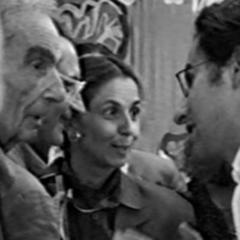


Today we’re accustomed to the psychoanalytic vocabulary that would name this experience as trauma. This is “the error of injustice” that would haunt Blanchot and his writing for decades, spanning the 50 years between this event and his later attempts to remember what had happened, or what had failed to happen, or couldn’t stop not happening to him - who was already someone else. It’s more likely the soldiers assumed that the residents of the château were of a “noble class,” deeming them “Seigneurs” protected from assassination even in times of war, unlike the neighboring farmers whose bodies had been scattered among the ashes of what used to be their homes. Of course, Hegel’s home had been pillaged on that fateful day of Franco-Prussian conflict, when history supposedly ended. Maybe, Blanchot muses, they recognized the significance of the number “1807” inscribed on the entrance to the building, the year Hegel completed the Phenomenology just as Napoleon, “the spirit of the world,” passed under the philosopher’s window in Jena, Germany. They stole a manuscript presumed to be war documents but didn’t burn everything down. When the soldiers returned, they ransacked the château.

Blanchot and his family, so it seemed, had been “saved.” The lieutenant stepped aside, and the Nazis, who were actually members of a collaborationist Russian army, abruptly left to join the skirmish.

He felt an “extraordinary lightness” - not happiness but a “sort of beatitude,” or “sovereign elation.” Then the sounds of battle rung out from nearby, probably “comrades” in the Resistance, he thought. All of a sudden, the young man felt seized by the inevitable grip of death, carried outside himself, suspended in time. Upon request, however, Blanchot’s family was allowed to go back inside. The lieutenant ordered everyone outside, commanding the young man, along with his mother, aunt, sister, and sister-in-law, to line up for the firing squad. Although the Allies had already landed on French soil, the Germans continued to struggle in vain against them, the war already lost but not yet over. “I remember a young man - a man still young - prevented from dying by death itself - and perhaps the error of injustice.” In just a few hundred words, Blanchot recounts how a Nazi lieutenant knocked on the door of his family home, an old château located in the provincial region of Quain in eastern France. “I REMEMBER A YOUNG MAN,” writes Maurice Blanchot at the start of his last book, The Instant of My Death (1994), transporting himself back to 1944.


 0 kommentar(er)
0 kommentar(er)
